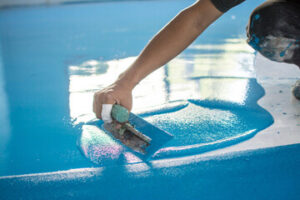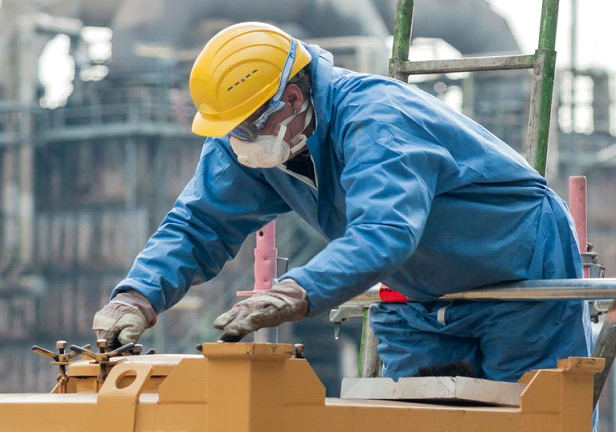Missing shingles or roof damage that has caused leaks are the most common reasons for a roof repair. If these problems are isolated and localized, repair may be enough to restore the integrity of your roof.

Localized roof repairs include fixing leaks, replacing damaged shingles or tiles, and repairing flashing. A professional can also improve drainage, preventing ponding water that can cause leaks. Visit https://www.jmelitecontractors.com to learn more.
Keeping your roof shingles in good condition is one of the most important things you can do to keep water leaks and structural damage from affecting your home. Taking the time to regularly inspect your roof and identify any issues is vital. It’s not uncommon to overlook shingle problems until they become serious and costly, but learning the signs of shingle damage can help you spot them before it becomes too late.
Cracked shingles are a common roofing issue that often occurs due to severe weather conditions like hail or high winds. These cracks expose your roof to moisture and potential water leaks, which can be quite dangerous. Fortunately, you can repair cracked shingles fairly easily by simply replacing the damaged portion of the shingle with a new shingle.
Shingles that are missing are another common roofing problem, and they can be a major cause of water leaks in your home. You can replace a missing shingle by loosening the shingle below it with a pry bar and removing the nail that holds it in place. Then, line up the replacement shingle and slide it in underneath the existing shingle, making sure it overlaps correctly. Finally, secure the new shingle by nailing it in and applying roofing cement to the edges.
Curling shingles are another common roofing problem that can be difficult to notice until it is too late. This is a sign of aging and improper installation, so it is important to replace these shingles before they lose their effectiveness and leave your roof vulnerable to water penetration.
Blistering shingles are also an indicator of roof deterioration. They are caused by trapped moisture and insufficient ventilation, and they can eventually rupture, leaving your roof exposed to moisture and possible leaks. Luckily, blistering shingles are relatively easy to fix with a bit of roofing cement and some colored granules to camouflage the repaired area.
If you’re a homeowner that is concerned about the state of your roof, or are looking for a professional to perform a thorough inspection and professional roof repair, contact us! We offer free roof inspections and estimates, and we can help you find the best solution to meet your needs.
Leaks
Leaks are often a warning sign that your roof needs repair. Whether they’re dripping or pooling, leaks can cause serious damage to your home and its contents. If left untreated, a leaky roof can lead to mold, mildew, or interior damage such as peeling paint and wallpaper. Even a slow leak can be a problem if it’s causing water to collect in the attic or basement.
If you’re suspicious of a leak, start by checking for discoloration on walls and ceilings. You can also look in attics and crawl spaces for water stains or damp spots. If you notice any of these issues, it’s important to contact a roofing professional right away.
It’s also a good idea to check for damaged or missing shingles, as these are the most common causes of leaks. It’s possible that the nails used to install these shingles have deteriorated over time, creating openings for rainwater to seep through. If this is the case, re-nail the affected area and apply an appropriate roof sealant to ensure a waterproof barrier.
Another common source of leaks is damaged or rusted plumbing pipes. If a pipe is leaking, it’s likely that the seal has broken or the pipe has ruptured. This can be a difficult issue to fix, and it’s best to call in a professional for assistance.
To help find the source of a leak, you can use a hose to simulate rainfall. Spray the suspected area while someone inside watches for signs of water intrusion. If the leak isn’t obvious, try isolating the area by spraying to the left and then the right of the suspected area.
Fortunately, repairing a leaky roof isn’t an impossible task. With the right tools and knowledge, it’s possible to repair a leak in most situations. To get started, you’ll need a few essential supplies: a putty knife, a roll of plastic sheeting or tar paper, duct tape, and some roofing tar or caulk. Before beginning your repair, be sure to cover the area with a tarp and divert any drips by using a bucket or similar container.
Built-Up Roofing (BUR)
BUR, also referred to as tar and gravel roofing, is an old-fashioned roof installation technique that has stood the test of time. It is a multi-layered system that has multiple redundancies to resist water damage. It is an excellent choice for commercial buildings that need durable, long-lasting, and low-maintenance protection.
BUR consists of alternating layers of asphalt and reinforcing fabrics, often called “felts” or ply sheets. These layers are bonded together to create a waterproof membrane. The base sheet is nailed or fully adhered to the roof deck and a layer of insulation is then applied on top of it. Then, successive layers of bitumen are applied using a hot application method or a cold application method. The last layer is a cap sheet that can be white-coated to reflect sunlight, making it more energy efficient.
Over time, the alternating layers of bitumen and felts can start to deteriorate, exposing the underlying roof structure. This is a common problem for older roofs and it is usually due to surface erosion. It is best prevented by conducting regular inspections and addressing any issues promptly.
Another common problem that can occur in a BUR system is blistering, which is the softening and bubbling of the roof surface. This can be caused by trapped moisture, and it can result in the formation of ridges or the separation of insulation from the roof deck. Professionals can repair the blistered area by finding and eliminating the source of the moisture before applying a sealant.
While built-up roofs are praised for their durability and minimal maintenance needs, it is still important to inspect them at least twice a year. This will help you detect any structural problems that need to be addressed before they become more serious. You should also check for cracks, pooling water, and any signs of leaking on the surface of your building.
Aside from regular inspections, it is also important to keep foot traffic to a minimum on the roof. This will prevent the roof from deteriorating and it will help to evenly distribute the weight of people walking on it.
Flashing
Flashing prevents water from entering the seams and cracks in a roof’s surface, and it’s particularly important at vulnerable spots like chimneys, skylights, and roof valleys. If the flashing becomes damaged, water can leak into the home, causing damage to the ceilings and walls.
Flashing is made of a thin layer of waterproof material, usually metal or vinyl. It’s installed around the edges of a roof to protect against moisture infiltration, which can damage shingles and lead to leaks throughout the structure. Flashing can be installed in one of two ways: either overlapping the adjacent shingle or embedded in the roof membrane.
During an inspection, a professional will examine the flashing for signs of wear and tear. If any areas of the flashing are damaged, they’ll patch them up or replace them altogether. Then, they’ll apply roofing sealant to create a watertight barrier and prevent future leaks.
When it comes to flashing repair, the right technique makes all the difference. First, the flashing must be cleaned thoroughly to remove any rust or debris that could cause leaks. Next, the new flashing must be cut and shaped to fit precisely around the relevant roof features. Once it’s in place, a liberal application of roof cement ensures a water-tight seal.
While flashing is typically designed to last a long time, rust and corrosion can cause small holes in the surface. Rather than replacing the flashing entirely, it’s often more cost-effective to simply cover up the hole with a patch. To do this, first, clean away any sharp edges or corrosion with a stiff-bristled brush. Then, cut a piece of flashing that’s several inches larger than the hole and secure it over it using roof cement.
Repairing flashing is a relatively straightforward process, but it requires careful attention to detail to avoid costly leaks and other problems in the future. Having an experienced roofer handle this task saves homeowners from a major hassle and extends the life of their roof. Professionals can also help with a wide range of other roof repairs, including shingles and shingle replacement, gutter installation, and repairing or replacing wood siding or fascia.



